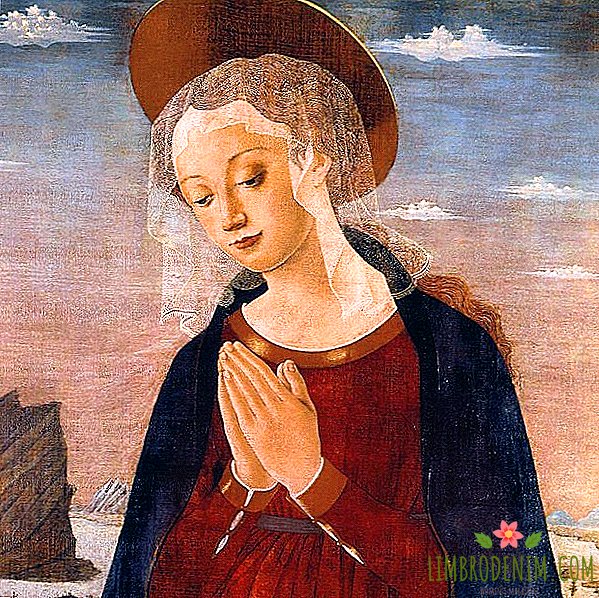Theater critic Elena Kovalskaya about favorite books
IN BACKGROUND "BOOK SHELF" we ask journalists, writers, scholars, curators, and anyone else not about their literary preferences and publications, which occupy an important place in their bookcase. Today Elena Kovalskaya, winner of the Debut and The Seagull theater awards, is a teacher of the Russian Academy of Theatrical Arts and art director of the Vs. Meyerhold.

My library occupies a single bookcase. Several collections of works. Theater literature. Non-fiction - books about the brain, mutants, space, politics. One third of the books are written by acquaintances and friends: plays by Kurochkin and Durnenkov’s brothers, Grishkovets’s novels and Mindadze’s scripts, Solomon’s Theatrical History and Littella’s “Benevolent Women” Littella’s translations; . My bookcase, therefore, was formed by friends. And reading preferences are men.
I fell in love with men along with the books they read. As a child I lived in a small town with poor libraries, I had to get good books. "Saga of Forsyte", for example, I was given in the library from under the floor in exchange for the wall newspaper, which I issued to them. One boy liked me, and I liked his dad's library. The boy wore Fenimore Cooper to me and gave out every novel for three days, and no more — Dad shouldn’t have noticed anything. Later at the institute I liked an undergraduate from a hostel. He read Dostoevsky — and after him I bought the collected works. He got on with Bernard Shaw - me too. He proceeded to Proust - and I followed him. I broke down on Joyce. The modernist novel was finished. As with the modernist himself.
Another thing was another good friend of mine - a postmodernist and a Muscovite. When he came to visit, he brought with him drinks and book novelties: Limonov, Sokolov, Sorokin, Prigov. I am friends with the postmodernist now. But she married another: an old-school romance who brought his favorite book, The Adventures of Amateurs of Okudzhava, on a first date. In fact, he had a good library, they collected it together with his mother (then I met exactly the same in many other Moscow houses), and in order to get to know my new husband better, I read his entire library from cover to cover - from " King Oedipus "to the collection" Deprivation of childhood ". But then Okudzhava began to disappear from the shelf from time to time. And I realized that my husband was fond of. And when once Okudzhava disappeared, the question of divorce arose. The library moved out with her husband, and I still regret it. Just do not ask what it is - a divorce or books. I myself do not know.

George Boyadzhiev
"From Sophocles to Brecht in forty theater nights"
The outstanding Soviet theater specialist George Boyadzhiev excitingly and eloquently tells about forty performances, and through them - about the history of the theater as a whole and about its modern theater. Among the performances are: "The Servant of Two Masters" by Giorgio Strehler, who was on tour in Moscow in 1960, and the production of Moliere on the tour "Comedie Francaise" in 1954. Among the heroes: Maria Casares, who played Maria Tudor in 1957 on TNP tour of Jean Vilar, and Anna Magnani in She-Wolf, which toured with us in 1966. Boyadjiev witnessed a thaw when Western culture surged towards us, his book is the first Soviet testimony of a post-war European theater. A book from the library of the former husband, and according to it I was preparing for an exam at the GITIS for theater studies. Eight years later, while preparing my own lecture course at GITIS, according to Boyadjiev, I learned through the small and particular to explain the large and the general.
Boris Groys
"Russian cosmism"
I was introduced to the “Russian cosmists” by a cool guy - a talented writer, a broad man and a wonderful storyteller. He retold Nikolai Fyodorov and Tsiolkovsky in such a way that the utopias of universal human unity, biological resurrection and ancestral settlement of the Universe sounded like Shahrazade's tales. Later, I heard more than once that cosmism is a part of Russian identity. What is utopian, zovralny cosmism distinguishes us, Russians, from the Americans with their pragmatic astronautics.
In a word, I heard about cosmists, but I did not read it myself. But last year, leaving the MMS after the Mamyshev-Monroe exhibition, I looked into the Moma-shop, which had just opened there, and the first thing I saw was an anthology of cosmists. I began to read it immediately, finding a free shop on Gogol Boulevard. I read and could not tear myself away. I was amazed: the arguments about biological immortality and the future of the Earth are inhumanly inspiring and very firmly given by fascism.
Bernard Show
Collected Works in 6 volumes)
I bought this six-volume book in 1987, only after graduating from school. I liked one student, and he was obsessed with Shaw. Our meetings were like lectures: I listened, and he spoke, spoke, spoke - about the theater of ideas and human nature. Because I liked the guy - I liked Shaw. With a student, life divorced us, and I loved Shaw. His plays were a school of sobriety and taught to sensibly evaluate events and people. Later, Shaw played a role in my life: helped to enter the theater.
I acted with such knowledge that it took a minute to present them all. The chairman asked without hope: "Maybe you even have a favorite playwright?" I say: "There is such a show." - "What kind of Shaw plays did you read?" - "Everything". Then an elderly lady jumps up: "My girl! I take, I take!" Then it turned out that it was Anna Georgievna Obraztsova, the main Soviet show. Nobody shared her love for the Irish, and here I appear. Now, leafing through the third volume, I found a bookmark with a quote from Eric Bentley. I agree with it even today: “Dramaturgy is the art of shaking, and the great dignity of ideas lies in the fact that they do not contribute colorless and dry rationality to the drama, but, on the contrary, prepare certain shocks for the audience.”
Alex Ross
"Next - the noise. Listening to the twentieth century"
The New Yorker reviewer Alex Ross answers the question of what happened to academic music in the 20th century, which makes it impossible to listen to current composers. I like the current music. But I was looking for arguments for others - viewers of the Meyerhold Center, where I work as art director. We, at TsIM, have been reducing the new academic music with the theater for three years, we present the finished works to the public and discuss with it. It is at this moment, on the discussion, that such questions come up. New music need to feel or understand? What was it that composers stopped writing beautiful music? And what have the Holocaust?
Alex Ross, unlike us, is not engaged in educational program. He talks about composers, from Strauss and Mahler to John Adams, about their music and about the processes that took place in the world, society and culture. One of the friends told last summer that he was reading a book and at the same time listening to the music Ross wrote about. I bought a book and spent a vacation with Alex Ross and the Internet, so now I can say: such reading takes a lot of time, but only it is fruitful.
Hans-Thies Lehman
"Post Drama Theater"
This book made noise long before it was translated into Russian. Lehman derived a concept for a new type of theater that began to take shape at the end of the last century, attracted young people and did not want to fit in the Procrustean bed of the drama theater. He introduced the concept of "post-drama theater" - by analogy with "postmodernism", "post-industrial society" and "post-history." Entered, decoded and cited examples from modern theater practice. And that's all. But by the time we learned this, the concept was mystified and one group of critics used it as a title, the other as a curse.
Those theater critics who tried to understand read Lehmann some in German, some in English, some in Polish. My English translation appeared in 2011: my then boyfriend bought it to me when we walked around London and wandered into Waterstone's. Three years later, the Russian translation of Natalia Isaeva was published; it was published by the Anatoly Vasilyev Foundation, which Lehman identifies as directors of the post-drama theater. The Russian book is much thicker than the English one and, to put it mildly, more enigmatic. But this is a great example of book design.
Dmitry Prigov
"Monads"
Dmitry Prigov is a conceptual artist, a poet and a great man in general, I think. Boris Groys believes that "he placed poetry in a new cultural space and found a new social role for it." "The social role of poetry" sounds like Prigov's verses are useful for seriously ill patients. And although it sounds silly, I can swear that it is. And I checked it out.
I somehow fell into the hospital in my second year. The hospital was ugly, the situation is such that reluctance to live. But I had a collection of poems - different, and Prigov too. So, I was lying on the bed and taught Prigov as a souvenir. And he saved me from longing and dustpan. Later I could carry me around with concerts — just give me the microphone: “Do I really need a lot in my life? I won’t say a word already. Like the Leibniz monad, I heal, and I buzz something there.” In general, let those who consider conceptual art cold and soulless keep silent. And the book - the first volume of the posthumous five-volume publication published by the UFO publishing house - was presented to me by the compiler of the book and its editor, philologist, professor at the University of Colorado and a wildly pleasant person Mark Lipovetsky.
Research project on the creative heritage of Meyerhold
"Love for three oranges (1914-1916)"
This is a collection of texts of Meyerhold's theatrical and artistic magazine "Love for Three Oranges" and a scientific commentary to them. The legendary magazine was published for three years, from 1914 to 1916. Meyerhold had the experience of the Art Theater and his own provincial enterprise, working with Vera Komissarzhevskaya and performances in Alexandrinka. He worked at Studios na Borodinskaya, was passionately fond of both symbolism and commedia dell'arte, and staged performances of The Stranger and Balaganchik. Around him, he gathered a group of young theater critics, translators, philologists - together with Meyerhold they were obsessed with the theater of the future, but to prepare for his arrival, they studied the theater of the past.
The two-volume edition was released in 2014, and we organized a presentation at the TsIM. I bought a few pairs of bricks and now I give it to familiar directors, on which, so to speak, I pin my hopes. Directing is understood as mastery of the production of the play, but this is nonsense. The director is Meyerhold: a frantic engineer of the future, studying the history of the theater.
Olga Sedakova
"Apology of Mind"
Olga Sedakova is called a poet and philologist. Indeed, her poems are fascinating, and her work on Dante and Pushkin is fascinatingly informative, especially if you read them in parallel with "Vita Nova" and "Eugene Onegin". But Sedakov, in my opinion, is also a philosopher. She talks about modern and postmodern as projects that have already been completed. And builds, combining philosophy with theology, perspectives. Despite the fact that in the era of “post-history” this word itself - “perspective” - sounds, to put it mildly, out of time.
Once I invited Olga Sedakov to meet with the listeners of the “School of Theater Leader” - the educational project of TsIM. I asked her to talk about the future with people for whom the future of our theater. After this meeting, she gave me this book. One of the chapters on Sergei Averintsev is called “Apology of Reason”. I advise her to everyone who, according to the centuries-old positivistic habit, builds conclusions about reality and art on the primitive opposition "mind versus feeling."
Vladimir Telyakovsky
"Diaries of the director of the imperial theaters"
The diaries of Vladimir Arkadyevich Telyakovsky, an outstanding, as they would now say, theatrical producer of pre-revolutionary Russia. He managed the management of the imperial theaters first in Moscow, in 1901 he moved to St. Petersburg and began to visit the court. His recordings are invaluable testimonies about the theater, where the Russian acting school at the turn of the century was called into question by the first directing success of Stanislavsky. And about Russia, where the age-old way of life is about to collapse. This is an academic publication, it was released jointly by the Research Institute of Art Studies and the Bakhrushinsky Museum. What I want to say by this: Telyakovsky’s diaries are not fiction. But this is one of the most interesting books about the Russian theater.
Peter Aven, Alfred Koch
"Gaidar revolution. The history of the reforms of the 90s first-hand"
By the anniversary of the death of Yegor Gaidar, his friends and colleagues thought about the book in his memory. And since the era in which Gaidar was the main character was complex and controversial, the book turned out to be the same: Peter Aven and Alfred Koch argue among themselves and with politicians about the nineties.
"Aven: It's half the trouble that you have sold the company cheaply. With secured auctions, you broke the notion of justice!
Chubais: What a tragedy - we broke with Aven the idea of justice. So I will survive it. And we have broken the perception of justice among the people through voucher privatization. Alik, tell him ... "
The nineties do not give me rest. I think we missed the chance to build a healthy country, so today we are flying back to the Soviet past. But who are these “we” and what can an individual do when history is accomplished? Someday we will make a performance about this in TsIM. The scenes of Berezovsky and Abramovich’s court will enter the London court (I heard with my own ears Abramovich explained the “roof concept” there), the stories of those who became happy in the 90s, those who followed the fate of the reform went through a skating rink. And these disputes are celestials, of course.




